Colorful world of Qinqiang opera
Hong Phuong -
(VOVWORLD) - In China, there is a saying that "If you want to see China over the past 100 years, go to Shanghai. If you want to see China over the past 1000 years, go to Beijing. But if you want to see China over the past 5000 years, go to Xi'an.” Once designated as the capital of China, this ancient city in north-central China boasts several cultural heritages. Qinqiang opera is one of them. With vibrant costumes, bold makeup and unique vocals and movements, Qinqiang opera is truly a feast for the senses. Close your eyes, and let VOV’s Cultural Rendezvous take you to this colorful world of this unique Chinese opera genre.
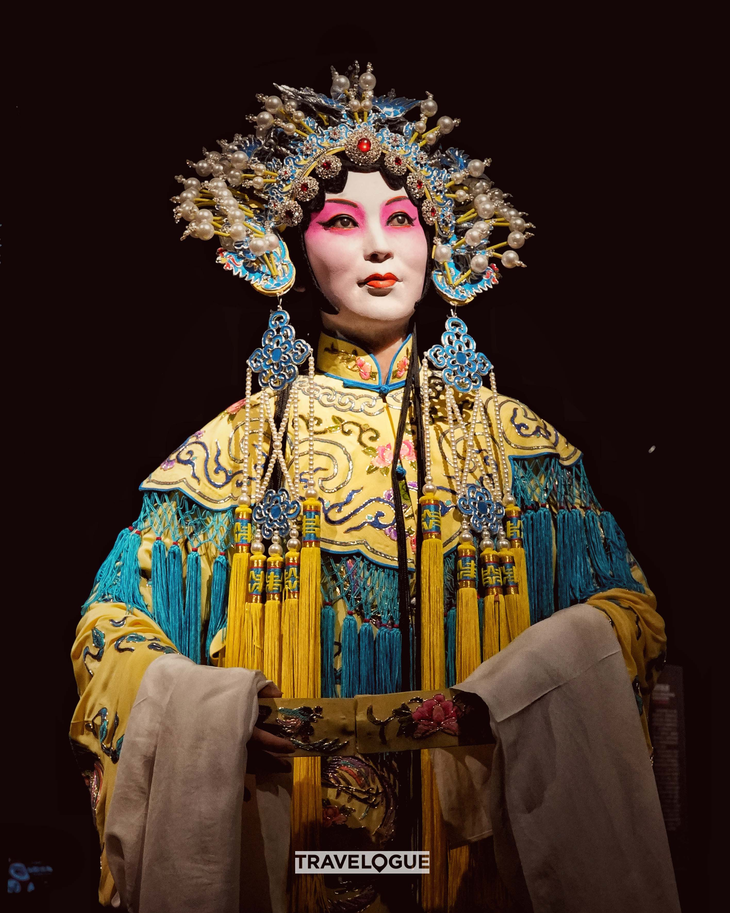 Photo: CGTN Photo: CGTN |
If today’s generation has Rock n’ Roll, the ancient Chinese have their Qinqiang opera. Banging rhythms, combined with high-pitched singing, a Qinqiang performance can enchant its audience from the very first beat. The opera’s origin can be traced all the way back to the Qin dynasty, according to Yuxin Tian, a professor from Northwest University in Xi’An. "Hello the audience of the Voice of Vietnam. My name is Yuxin Tian. I come from China. I am a university professor teaching both Chinese and English to the speakers of other languages at Northwest University in Xi’an. Qinqiang opera originated in Shaanxi province - that is my province - during the Qin dynasty around 200 BC."
First created in the Yellow River Valley, the captivating sound of Qinqiang opera soon traveled far and above, and became a favorite art form for the neighboring regions. Its popularity rocketed during the Tang dynasty that ruled from 618 to 907 when it was known under an impressive name: "Emperor Qin Shi Huang's opera", and then later on renamed to Qinqiang opera, which means “Qin accent” opera.
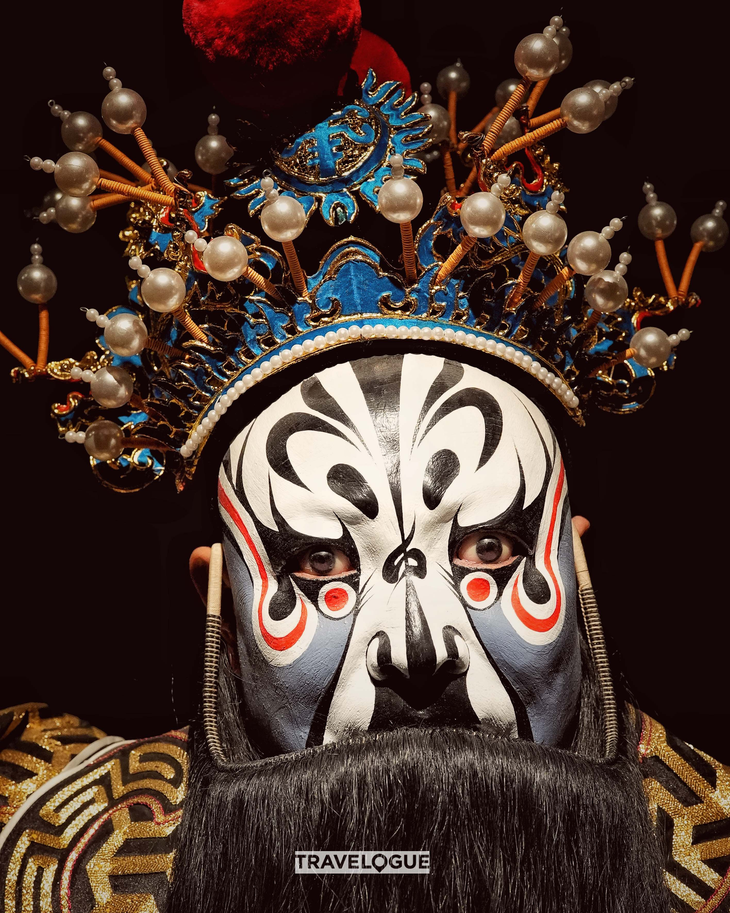 Photo: CGTN Photo: CGTN |
If you are new to Qinqiang opera, the easiest way to tell it apart from the myriad of Chinese opera genres is the singing. At first, one may confuse the actors’ singing for shouting due to the high-pitched, powerful vocals. This eccentric singing is an artistic choice aimed to convey the characters’ emotions in the most impactful way.
Tian said, “I have attended Qinqiang opera performances several times. I found the combination of vocal intensity and traditional storytelling quite captivating. The “shouted out" style in Qinqiang opera involves powerful, forceful singing, with distinct vocal patterns. Initially, it feels unique and impactful, creating a strong emotional connection. Besides singing, Qinqiang opera performances feature expressive facial expressions, dramatic movement, and sometimes martial arts. The music and actors' emotional delivery contribute to the overall experience.”
Like Tian, audiences are drawn to Qinqiang not only for its impressive vocal performance, but they also come for the phenomenal acting. In fact, Qinqiang is one of the first ancient operas in China to emphasize the characters’ emotions. Hence, exaggerated gestures and expressions are very common in Qinqiang performances. For some performances, the actors are even required to showcase their martial arts skills.
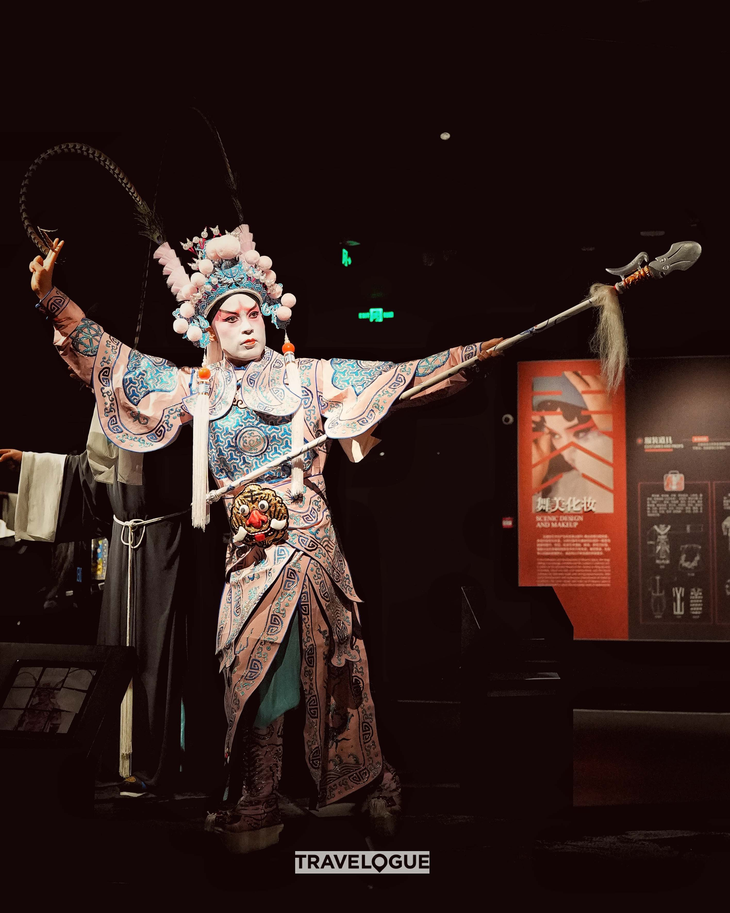 Photo: CGTN Photo: CGTN |
Minwei, a student at Northwest University, admires the artistry behind Qinqiang performances.
“Qinqiang opera actors are highly skilled in portraying a wide range of emotions with facial expressions and gestures to convey the feelings of their characters. The performers undergo rigorous training to master the art of expressing complex emotions to their acting, adding that intensity to the storytelling. The physical movements in Qinqiang opera are carefully choreographed and play a significant role in the overall performance. The actors' moves are often stylized and symbolic, reflecting the character’s personality, emotions and actions. Qinqiang opera sometimes incorporates elements of martial arts, particularly in scenes of war combats or action sequences. Skilled martial artists may be involved in the performance, showcasing their strength and precision in choreographed fight scenes that add excitement and energy to the production,” said Minwei.
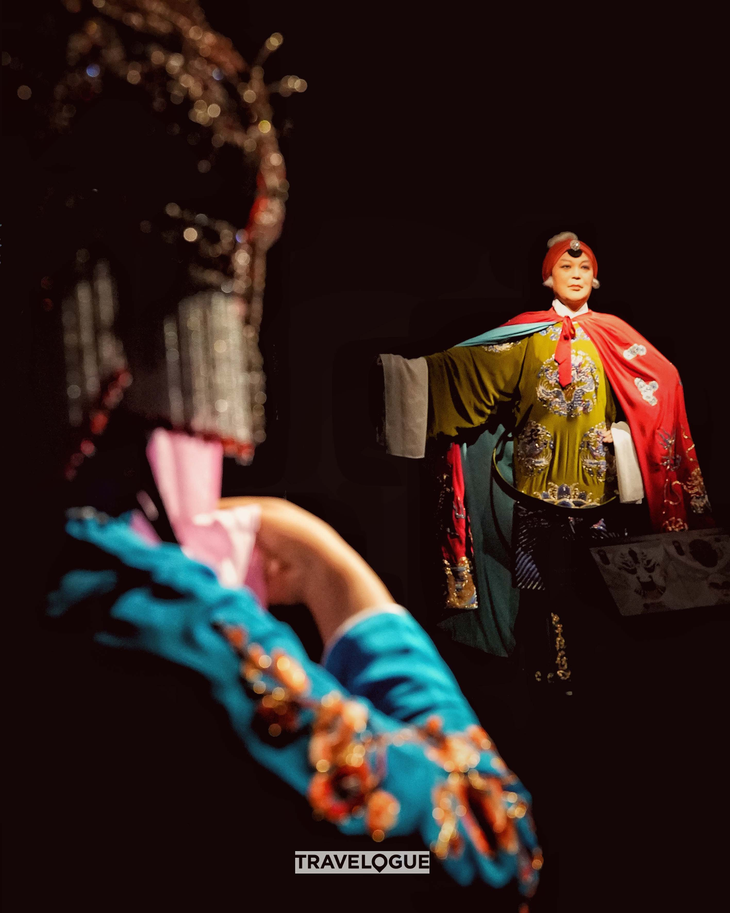 Photo: CGTN Photo: CGTN |
Qinqiang opera is an art form created by common people, thus its stories resonate with the masses. To the people of Northwest China, this art goes beyond a mere form of entertainment - it represents their essence. Whether the operas depict a historical event or legendary tale, they always convey moral lessons, while honoring the bravery and other good virtues of people in the region.
Minwei said, “My favorite Qinqiang performance is Yang’s female warrior. It’s a classic Chinese opera that tells the story of Mui Kwai-ing, a legendary female warrior from the Song Dynasty. The opera portrays Mui Kwai-ing’s bravery and leadership as she commands an army to defend against invading forces. The story celebrates her martial powers, strategy and loyalty to her country through vibrant music, dynamic choreography and compelling storytelling. Yang’s female warrior pays tribute to the strength and resilience of women in ancient Chinese history.”
At its height of popularity, the total number of Qinqiang operas reached 10,000. Now that its heyday has passed, there are only around 4,700 Qinqiang operas remaining, but the development of this opera does not end here. In 2006, Qinqiang opera was recognized as an intangible cultural heritage. Local authorities are striving to spread this unique art form to a wider range of audiences, especially the young by incorporating the art into modern fields.
Tian said, “Qinqiang opera is still popular, especially in Shaanxi province. It may not be as widespread as modern forms of entertainment, it maintains a dedicated following. The interest of young people in Qinqiang opera varies, but efforts are made to promote it. Local authorities may organize events, workshops, or incorporate into other educational programs to ensure its cultural legacy is appreciated by younger generations.”
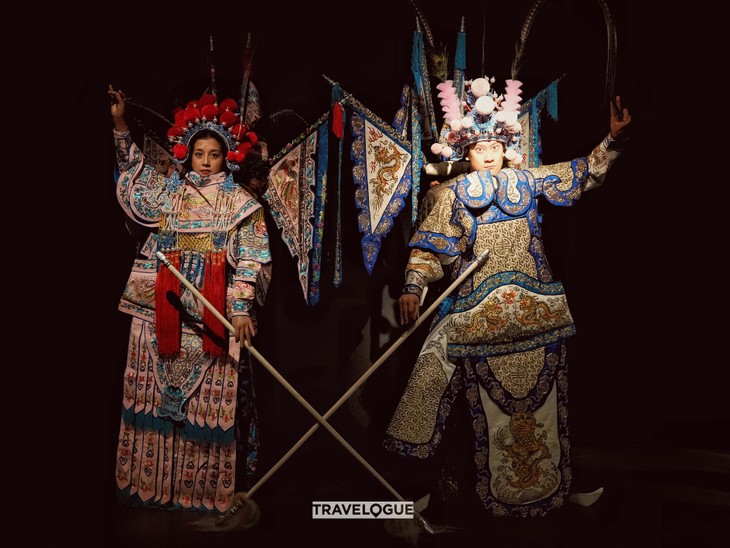 Qinqiang, a local opera form from northwest China's Shaanxi Province, features colorful and exquisite costumes. Photo: CGTN Qinqiang, a local opera form from northwest China's Shaanxi Province, features colorful and exquisite costumes. Photo: CGTN |
In this fast-paced digital era, it is challenging to preserve an ancient art form, especially one that is so unique. However, with its increasing presence in the young’s life, Qinqiang opera is clearly here to stay. In 2022, Qinqiang opera was used to create music for the Counter Strike: Global Offensive video game in China.
At the opening of the China-Central Asia youth arts festival in May 2023, a troupe gave a Qinqiang opera performance. As long as there are people who appreciate the art, the beautiful melodies of Qinqiang opera will still resonate.
Hong Phuong